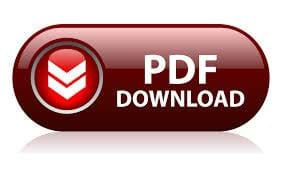2014-15 Individual Tax Return Checklist
The following is a checklist for information required to prepare Income Tax Returns for the 2014-15 financial year. Please ensure that you review the checklist and have all information available when completing your Tax Returns.
Income
- Gross Salary, Wages, Allowances, Benefits, Earnings, Tips and Director Fees.
- Income from Business Activities.
- PAYG Payment Summaries.
- Details of any non-cash benefits received, including discount(s) on employee shares or rights.
- Lump sum and termination payments. All documentation should be provided including an ETP Payment Summary from the employer or fund.
- Government Social Security payments, including pensions, unemployment and sickness benefits.
- Details of any CGT asset sales (e.g. shares and real estate). Please include dates of, and costs associated with, acquisition and disposal. (You can save tax if you qualify for the variety of CGT concessions).
- Annuities, including allocated pensions or superannuation income streams.
- Income from trusts and partnerships. Statements of distribution should be provided where appropriate.
- Rental income.
- Interest and dividends received and any tax deducted. Include details of franked dividends (imputation credits).
- Foreign source (employment and pension) income, and details of any foreign tax credits.
Deductions
- Investment and property expenses (carefully detail interest claims).
- Subscriptions (not including sporting or social clubs).
- Employment related expenditure such as work-related motor vehicle, self-education, protective clothing, tools, uniform and laundry expenses.
- Donations of $2 and over.
- Income Protection Insurance premiums.
- For self-employed persons, details of any superannuation contributions made.
- Home office expenses where employment requires use of your computer, phone or other device.
- Tax Agent fees and other accounting/tax audit fees.
- Special deductions (Australian films, investment shelters and agribusiness-type schemes).
- Bank fees (where the credit or deposit represents assessable income).
- Unrecouped prior year losses.
Rebates
- Private Health Insurance annual statement.
- Details of superannuation contributions where no tax deduction can be claimed.
- Any changes in dependents including children’s details, dates of birth and any Centrelink benefits applicable.The income of your spouse also needs to be provided.
- Details of any income received in a lump sum accrued in earlier income years, e.g. assessable pensions.
- Details of any remote work performed for 183 days or more.
- Net family medical expenses if they exceed $2,218 in total, i.e. medical expenses paid net of reimbursements from Medicare and/or health fund. This can only be claimed by Taxpayers who received this offset in 2013/2014 or the expenses relate to disability aids, attendant care or aged care.
- HECS Debt details.
New Clients
- Last year's Notice of Assessment and Tax Return (if available).
Most Common Errors in Income Tax Returns
1. Omitting Interest Income.
2. Incorrect or Omitted Dividend Imputation Credits.
3. Capital Gains/Losses are Incorrect or Omitted.
4. Home Office Expenses.
5. Depreciation on Rental Property Fixtures and Fittings.
6. Depreciation on Income ProducingBuildings.
7. Borrowing Costs associated with Negative Gearing.
If you would prefer to post or email your information, please download a copy of the “2015 INDIVIDUAL INCOME TAX RETURN INFORMATION SHEET” here prior to sending your information.
Disclaimer: To ensure you obtain the maximum deductions to which you are entitled, and in consideration of the penalty provisions, full details of any claim should be provided and supporting documentation made available. For employee taxpayers and for travel and motor vehicle claims by self-employed taxpayers, documentation must be a receipt, tax invoice or similar document which contains the required details. For other taxpayers, documentation may comprise receipts, dockets, diary notations or reasonable and supporting estimates.
IMPORTANT DISLAIMER: This information does not constitute advice. Before acting on this information, consult your professional adviser. No responsibility is taken on the basis of the information provided without professional advice.

